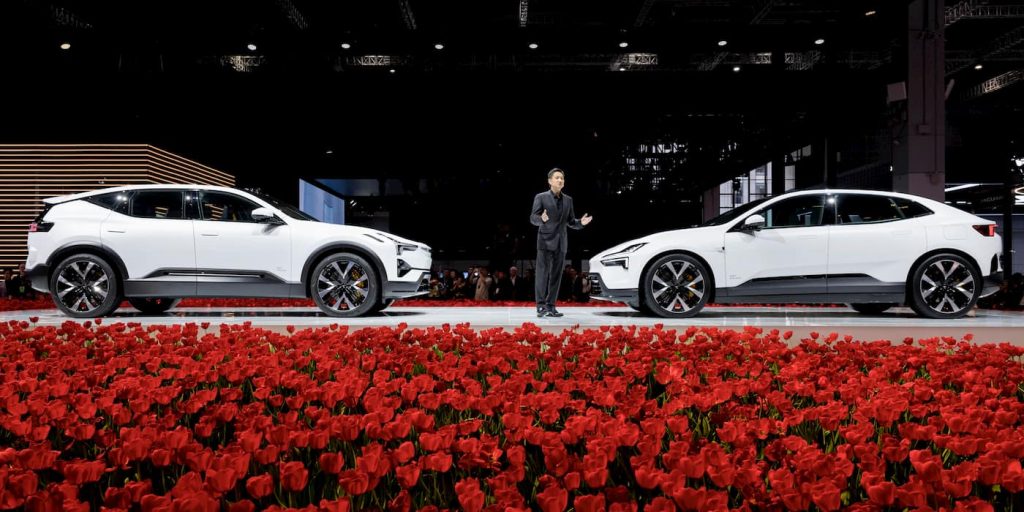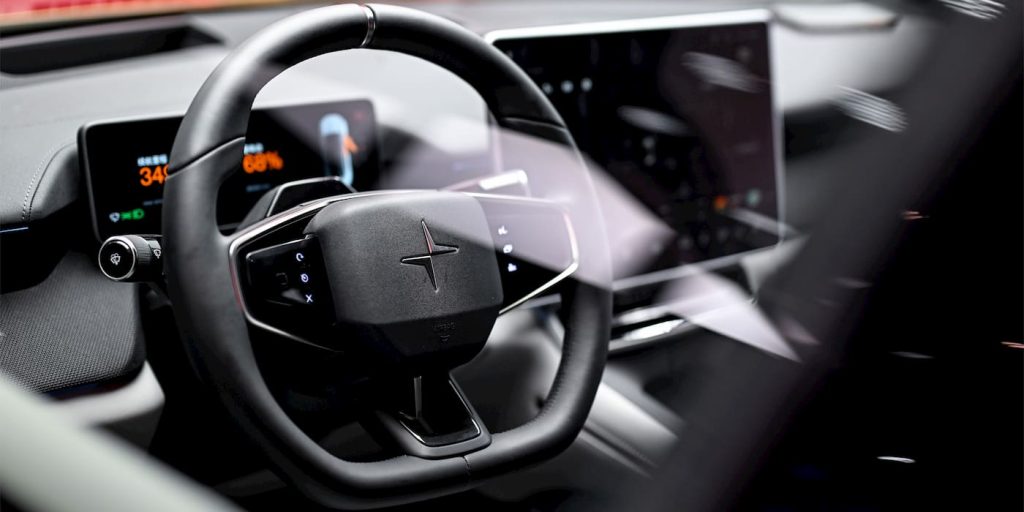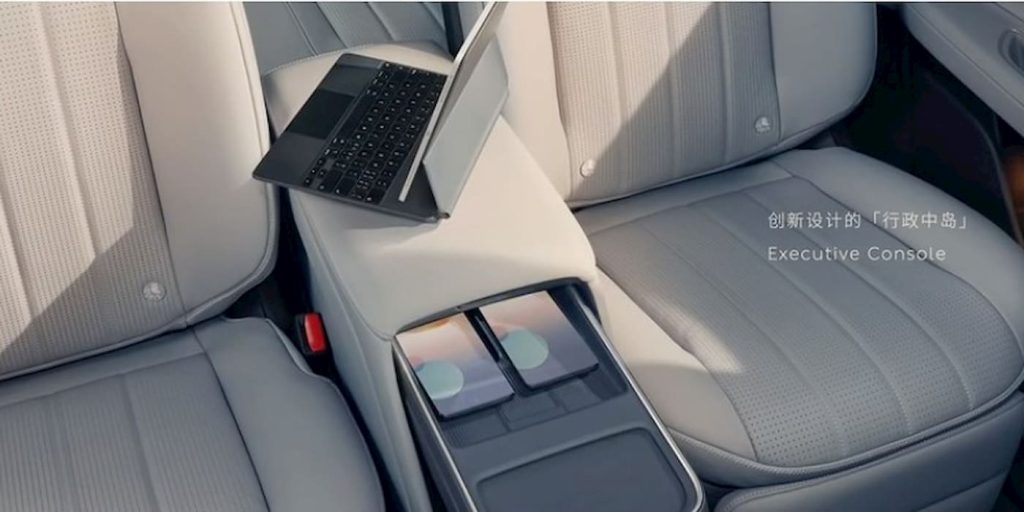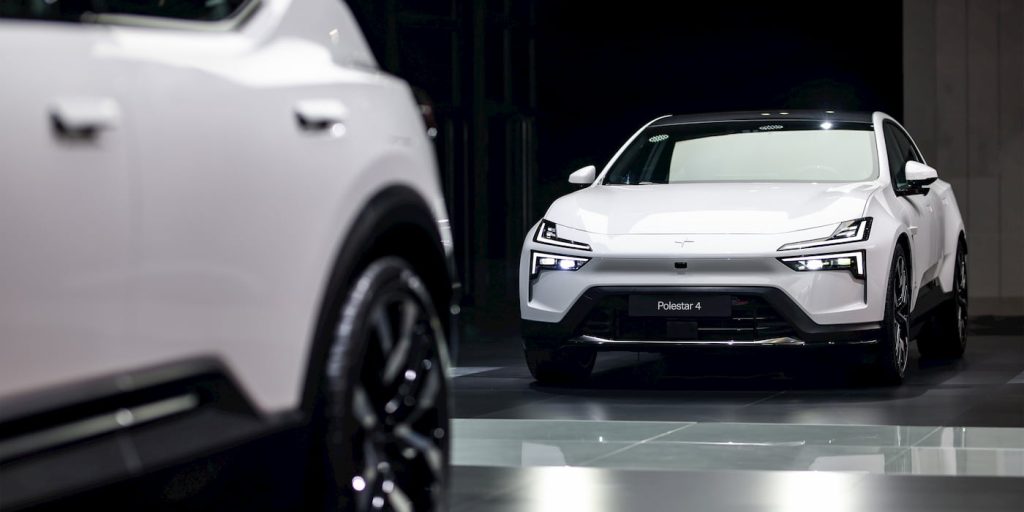
Up-and-coming EV maker Polestar (PSNY) is launching a smartphone in December as its first electric SUV, the Polestar 4, begins rolling out in China.
Polestar’s CEO Thomas Ingenlath told CNBC that the EV maker plans to begin Polestar 4 production, with deliveries expected by the end of the year.
Ingenlath also mentioned that Polestar will take an innovative approach by launching its first smartphone in December. The new smartphone will carry the Polestar brand name while making its vehicles more like “mobile phones on wheels.”
The move comes as buyers in China prefer tech-oriented, connected experiences with the latest features.
Polestar’s new smartphone emerges from the EV maker’s alliance with Chinese tech company Xingji Meizu Group. Polestar formed a joint venture with the tech company in June to advance its in-vehicle operating system (OS) for the Chinese market.
Geely, Polestar’s parent company, bought a majority stake (nearly 80%) in Meizu last year to expand its digital platform solutions.

Polestar smartphone coming in December
Meizu was once one of China’s most popular smartphone makers, known as a potential Android rival. However, the tech company lost market share to more prominent players like Xiaomi and Apple.
By partnering with Meizu, “we will be able to offer the locally tailored user experience that both drivers and passengers expect,” Ingenlath explained.
Meanwhile, with the tech company’s help, “Polestar will take the lead in the field of smart mobility,” Xingji Meizu chairman Ziyu Shen said.

Ingenlath mentioned that the Polestar smartphone will be a “premium” device to link to its premium EVs. He added:
It’s not just good enough to bring a great European design to China, you have to be very, very special about what you offer to the market when it comes to software.
Polestar is not the only up-and-coming EV maker with launching a smartphone. China’s own NIO is also launching a mobile phone to improve the user experience.
NIO received its license to access the internet in China in July, crossing the last major hurdle before it can be sold there. However, the NIO phone is powered by Android.

Without Google Android mobile OS, Polestar can customize the operating system on the phone while syncing it up to the car. Meizu is creating an OS for Polestar based on its own FlyMe.
Neil Shah, vice president of research at Counterpoint Research, told CNBC that launching a smartphone enables Polestar to bundle software, apps, services, and features (think Apple).
The smartphone will debut alongside its first electric SUV in China, the Polestar 4. Ingenlath says the Polestar 4 is positioned as “more premium, more luxurious” than Tesla’s Model Y.

The electric SUV will start at around $60,000 and is designed to take on rivals like the Porsche Macan.
Meanwhile, Polestar’s first electric SUV in the US, the Polestar 3, will begin production in the first quarter of 2024. It will launch in two versions (long-range dual motor and performance), with the standard model starting at $82,900 with up to 300 miles range expected.
Electrek’s Take
The Chinese auto market is rapidly transitioning to the digital, electric era. Domestic EV makers like BYD, NIO, and others continue gaining market share by offering unique user experiences.
Ford’s CEO Jim Farley has mentioned this before, saying he had a “real epiphany” after visiting China.
Farley explained, “It’s interesting to see how customers are no longer just attracted to traditional luxury brands with EVs or even hardware design anymore.” Instead, he said, “The best new brands are offering integrated digital, retail, lifestyle, and experience that are software-defined.”
Other legacy automakers, like Volkswagen and Audi, are outsourcing technology to help them attract local market share.
Author: Peter Johnson
Source: Electrek



